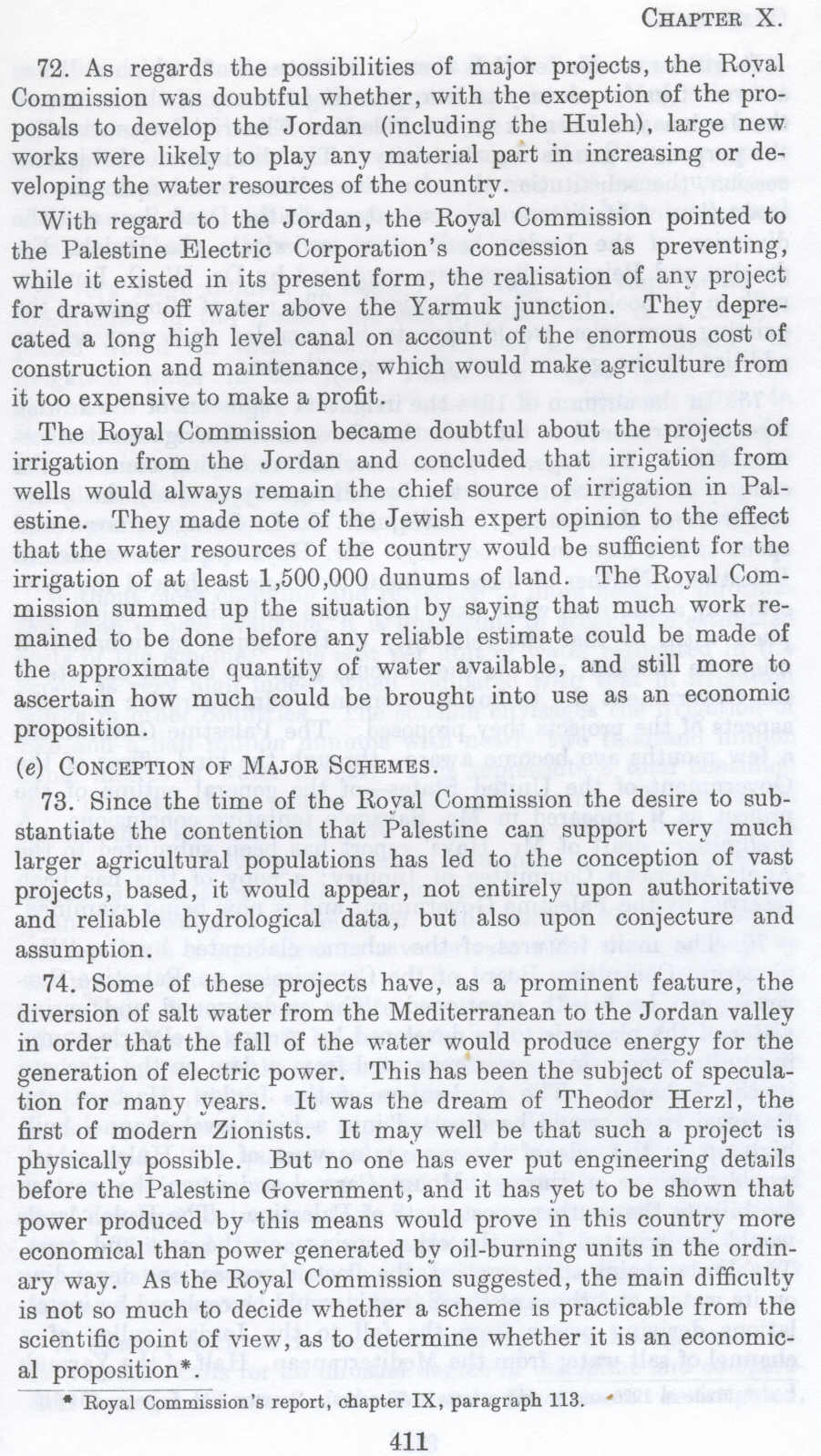| Prev | Next |  |
| Prev | Next |
| PalestineRemembered | About Us | Oral History | العربية | |
| Pictures | Zionist FAQs | Haavara | Maps | |
| Search |
| Camps |
| Districts |
| Acre |
| Baysan |
| Beersheba |
| Bethlehem |
| Gaza |
| Haifa |
| Hebron |
| Jaffa |
| Jericho |
| Jerusalem |
| Jinin |
| Nablus |
| Nazareth |
| Ramallah |
| al-Ramla |
| Safad |
| Tiberias |
| Tulkarm |
| Donate |
| Contact |
| Profile |
| Videos |
British Mandate: A Survey of Palestine: Volume I - Page 411 |
Disclaimer
The above documents, article, interviews, movies, podcasts, or stories reflects solely the research and opinions of its authors. PalestineRemembered.com makes its best effort to validate its contents.


Post Your Comment
*It should be NOTED that your email address won't be shared, and all communications between members will be routed via the website's mail server.
72. As regards the possibilities of major projects, the Royal Commission was doubtful whether, with the exception of the proposals to develop the Jordan (including the Huleh), large new works were likely to play any material part in increasing or developing the water resources of the country.
With regard to the Jordan, the Royal Commission pointed to the Palestine Electric Corporation's concession as preventing, while it existed in its present form, the realisation of any project for drawing off water above the Yarmuk junction. They deprecated a long high level canal on account of the enormous cost of construction and maintenance, which would make agriculture from it too expensive to make a profit.
The Royal Commission became doubtful about the projects of irrigation from the Jordan and concluded that irrigation from wells would always remain the chief source of irrigation in Palestine. They made note of the Jewish expert opinion to the effect that the water resources of the country would be sufficient for the irrigation of at least 1,500,000 dunums of land. The Royal Commission summed up the situation by saying that much work remained to be done before any reliable estimate could be made of the approximate quantity of water available, and still more to ascertain bow much could be brought into use as an economic proposition.
(e) CONCEPTION OF MAJOR SCHEMES.
73. Since the time of the Royal Commission the desire to substantiate the contention that Palestine can support very much larger agricultural populations has Jed to the conception of vast projects, based, it would appear, not entirely upon authoritative and reliable hydrological data, but also upon conjecture and assumption.
74. Some of these projects have, as a prominent feature, the diversion of salt water from the Mediterranean to the Jordan valley in order that the fall of the water would produce energy for the generation of electric power. This has been the subject of speculation for many years. It was the dream of Theodor Herzl, the first of modern Zionists. It may well be that such a project is physically possible. But no one has ever put engineering details before the Palestine Government, and it has yet to be shown that power produced by this means would prove in this country more economical than power generated by oil-burning units in the ordinary way. As the Royal Commission suggested, the main difficulty is not so much to decide whether a scheme is practicable from the scientific point of view, as to determine whether it is an economical proposition" .
_____________________________________________
.* Royal Commission's report, chapter IX, paragraph 113.
411